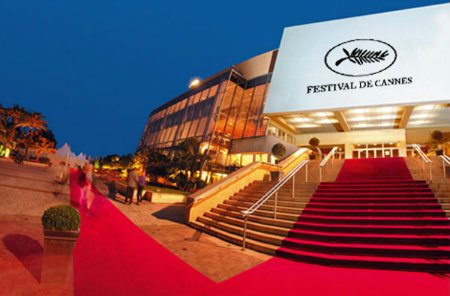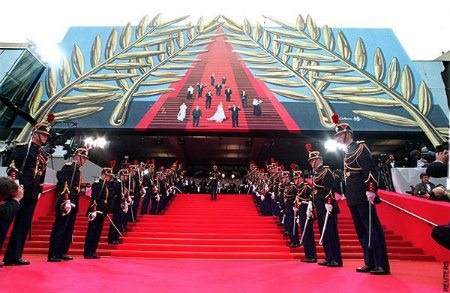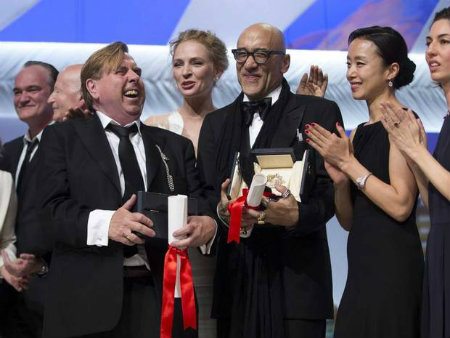‘Why is your Film Different?’: the Film Market at the Cannes Film Festival
I had the chance to get a cup of coffee with Juan Pablo Solano Vergara, owner and executive producer of Proyeccion Films, a film production company, since 2009, after his trip at the 64th Cannes Festival.
Patrick Sambiasi: How was the Cannes Film Festival? Was it your first time? How would you describe this experience?
Juan Pablo Solano Vergara: This was my (consecutive) third year, but even if you have already been there before and you know how it works, you are always amazed every time you get there. You are amazed about how big it is and how many people go and how much business is going on. You are also amazed of how many films are out there and you feel that your films are just one little thing in a big sea of films. That’s kind of tough and you feel small at Cannes, but being there is also encouraging.
P: The Cannes Festival is definitely the most important one in Europe, especially for promoting international filmmakers. For instance this year it was the Turkish filmmaker (Kis Uykusu with Winter Sleep) who won the Palme d’Or. It was the first Turkish film to win since 1982, which must be rewarding because it doesn’t matter where you come from you can participate to the Cannes Festival.
JP: True, you get people from all over the world. I mean, you will find every single country – even the smallest ones. They are there and they are promoting their ten or twenty films, this is amazing. Then there is you, and your country, like myself for Colombia. The Colombian film commission tries to do a lot of work to promote our country so that it is known all over the world. One of the things that they do, for example, is a party every year at Cannes which has become one of the most popular parties at Cannes and that’s very good for Colombian producer, because everybody is interested in knowing you tin order to get invited to the party.
P: Do you feel that you are representing Colombia when you are there?
JP: Definitely, I was attending the producer network which is part of another big thing at Cannes beside the festival, the Marché du film (one of the largest film markets in the world). At the Producer Workshop, producers who are premiering their films can attend a lot of lectures and gather advices from big producers who could help them to develop their project or to premiere the films they have in post-production. The Producer Workshop is kind of a training session for producers while the Producers Network is limited for a small number of producers (550 from around the world). It’s based of breakfast meetings and you must have at least two films premiered in your country to be part of it. Your country’s film commission must also recommend you to be part of it. You sit down at a table of eight to ten producers and you basically talk about each person’s projects and you talk about possible co-productions. So, for example, in that case, in the Producers Network, I know I was representing Colombia. Colombia in the film industry and Cannes sounds exotic, interesting, and you use that to try to do business.
P: How would you describe a day at the festival? Has it changed during these years or is there some kind of schedule you follow all the time?
JP: You start doing a schedule at least one month or three weeks in advance. You start requesting meetings with people that are going to be there and you use a platform called Cinando. All the producers are listed in there and when they confirm their Cannes attendance you start doing your research depending on which type of projects you have. You want to make a film with Australia , let’s say, and part of the film happens in Australia and you want to have Australian actors. You go to Cinando and you can look for Australian producers. You will see a list and you will see who is going to Cannes so there you can find all the information and you can request a meeting. You start doing this with all the types of projects you have and with all the people that you want to meet. Most of the producers go there to meet sales agents and they try to close a deal with their movies. So your basic day at Cannes is 9am you start the Producers Network until 11:30, you go for a quick bite and then you have other meetings from 2pm.
P: It’s not about going there and watching some movies then?
JP: I tried to watch at least one or two films but it’s pretty tough because you have a really tight agenda. At 6pm you have the cocktail of The Cinema du Monde and you want to be there because you want certain people to remember you and you want them to know about their project. After that there is probably dinner and after that probably a party. The party ends at one or two and you have to be up again at 9. That’s the whole routine for six days. It’s very exhausting. At the end of every film festival – but especially at Cannes – I end up feeling ‘ok that was too much I need to recover and two days of resting’.
P: What would be the main difference between other European Film Festivals and Cannes?
JP: I’ve been in Berlin twice – I went this year and last year. The thing with Berlin is that everything happens in different places. You keep moving around a lot, around the city and things happen far away. And it is not as big. The good thing is that you get more time to watch movies, at the Berlin Festival I watched maybe five or six movies.
You are selling yourself all the time. At the end of the festival you’ll feel tired of smiling all the time and being polite.
P: I have talked to someone who has been to the Cannes Festival a couple of years ago and I was told how there are so many movies in the competition that it’s impossible to see them all anyways.
JP: There are a lot of people like the buyers and distributors from each country who go to Cannes and they do watch a lot of films. That’s what they do all day. They go to the market screenings or they watch the films in the competition. At Cannes I tried to go at least at one Gala, one red carpet event, if you get an invitation, and it all works with points, it depends of how many times you’ve been there. You gather some points and then you can request for an entrance. Probably someone you know has an invitation and he won’t be able to go. You get it and you end up going to the Gala with big names and stars and that’s fun.
P: It is obviously a different way to live the Cannes experience.
JP: Exactly, it depends of what you are doing. The sales agents, for example, they move around trying to sell and that’s what they do. The first days of the festival it would be really hard to get a meeting with them because they are focused on selling films.
P: What movies were you able to see?
JP: I was just able to see an Argentinian film that was in the competition and is called Relatos Salvajes (Wild Tales by Damian Szifron). It’s a film about different small stories, people snapping and just going out of their limits. When you are there for doing business, it’s one or the other basically. Cinando gives you the opportunity to request for a screening online for certain films. If it’s a big film, a big production, you will be able to see it later in cinemas. But you’ll never have another chance to have these kind of meetings. I think that’s a priority. Talking to people, building a network, trying to do business, co-productions and see what’s out there by listening to pitches. For example you will hear a lot of people telling you ‘okay, tell me your pitch’ and you have two minutes to say ‘okay, this is the movie’.
P: You have to sell yourself.
JP: Yes, you are selling yourself all the time. At the end of the festival you’ll feel tired of smiling all the time and being polite.
P: Meeting someone, push the play button, say all you have to say, then stop and repeat again to another person.
JP: Exactly, but then you can say ‘okay, I feel overwhelmed now’, but you have to. I mean, if you don’t sell your project and you don’t sell yourself as well it’s not going to be easy to get your movie done.
P: It’s a difficult market.
JP: Very tough. As I’ve said, when you get there you realise how many films are out there. There are a lot of films. Why is your film different?
P: How do you feel at the end of the festival? What is the memory that you cherish the most about this year’s festival?
JP: We closed the deal for a UK film that is going to be shot in Colombia and my company is going to do the production services for them. It represents really good business for us and it basically means that we can keep doing what we love, which is making films and keep the company going. And also we closed a deal for a co-production we are going to get involved with Mexico and Ecuador for a Drama Thriller Action film about a semi-submersible that is transporting drugs from Ecuador to Mexico. It’s a really interesting film. You then have to start developing something from the beginning which will take you three years, this is why it’s very important to have several projects on hand. That’s an advice a producer gave me once: ‘if you don’t have at least five projects on hands your main target, your main goal, should be to start looking for those and to complete those five projects’. You never know, maybe none of them will work, but maybe one will do fine, that’s when you have to start looking for the new five. Start moving and always keep moving. I’ve seen companies fail because their only goal was based on one movie and if that one failed or if it took ten years to shoot it then there would be no company anymore. Money has to come in and out.
He has this phrase: ‘you know what’s the best way to become a millionaire? Well, first you become a billionaire and then you start making movies and then you will become a millionaire’
P: Do you think it is better to have five decent projects instead of a really good one?
JP: Well, that depends on what kind of company you want to have. I mean, if you want to have a company that is a reference as Sony (Pictures) Classics. They are always going to distribute films that are of a certain artistic quality. If you want to be that then be ready to take a long time to find that film, be ready to face the consequences when you realize that it is a very interesting movie but no one went to see it, you have to be ready for that. If you are a producer and you produce only the films you can be artistically proud of, you feel that the quality is the most important thing then you should be ready to get some bad news sometimes. If you are starting from scratch and you don’t get a hit, it’s not that easy.
P: Because people don’t trust you at the beginning of your career.
JP: No, it’s very hard to get money from someone for a first feature, for a first time director.
P: How did you feel it was in England? Because I’ve heard that people prefer to put their trust in original and concrete ideas without necessarily thinking about career experience.
JP: I think it depends where the money is coming from. Money for movies comes from very different ways and it depends where you are. When you are a small production company and you have a first time director – and plus you are not part of the LA circle – it is really tough to get that money from anywhere. I guess in England, or in Colombia, or wherever it will be pretty tough, because film, like every business, is risky, but film is especially risky, because, at the end, you never know what is going to happen. You never know if that day that you are premiering the movie it’s going to work or not. I mean, it will make a huge difference if your film is in a multiplex where the seats are only eighty and the manager chose to put your film in a smaller room because he had to show a big blockbuster in the other room. Even these little single details can make a big difference on the success of a film. Jeffrey Skoll, the president of eBay and also the founder of Participant Media, said about his films: ‘I want to make films that say something to people’, so he made An Incovenient Truth written by Al Gore, a film about climate change, and he made Syriana starring George Clooney and Matt Damon, and he said this is the reality of the whole business. He has this phrase: ‘you know what’s the best way to become a millionaire? Well, first you become a billionaire and then you start making movies and then you will become a millionaire (laughs)’. Movies can be a great way of losing money. Even if you have stars, if the movie doesn’t work, it doesn’t work – that’s it.
P: I have the feeling though that now something is starting to change, for example, I have noticed these past few years that French actors are finally going to Hollywood. Actors like Jean Dujardin, Omar Sy or Mélanie Laurent. Even if this seems like a common thing when we think about the Golden Age of Cinema with Greta Garbo or Marlene Dietrich.
JP: When they make the jump, then it changes, but not before. What helps them to make them famous in Europe is when they make the jump to Hollywood. Ingrid Bergman, for example, she wasn’t famous because she was a very famous Swedish actress, but because she made the jump. Penelope Cruz as well.
P: Isabella Rossellini?
JP: Yes, and Xavier Bardem made a huge jump to Hollywood. He won an Oscar, he is a great actor and he will be a name. But if you are a Latin American producer and you have a one million dollar film how can you pay Xavier Bardem? Our business strategy or at least what we have in mind with my business partner and I, it’s to try to make it in Latin America to eventually make the jump. What we want is ten years from now we want to be in LA. You have to be there, that’s where the real things are happening. It’s like baseball there are little leagues, like right now in Latin American we are not the biggest company but we’ll be one of the middle so we are in minor little leagues. Then you move to be little leagues and then you move to the major leagues. But, again, you don’t have to do, it depends what you want to do. Know how to finance your things and know who your audience is even before starting to write a script. I think I didn’t have it in mind when I started film school; I just loved films and I grew up watching and making films since I was thirteen years old, but then you don’t think about how the real business works.





Comments